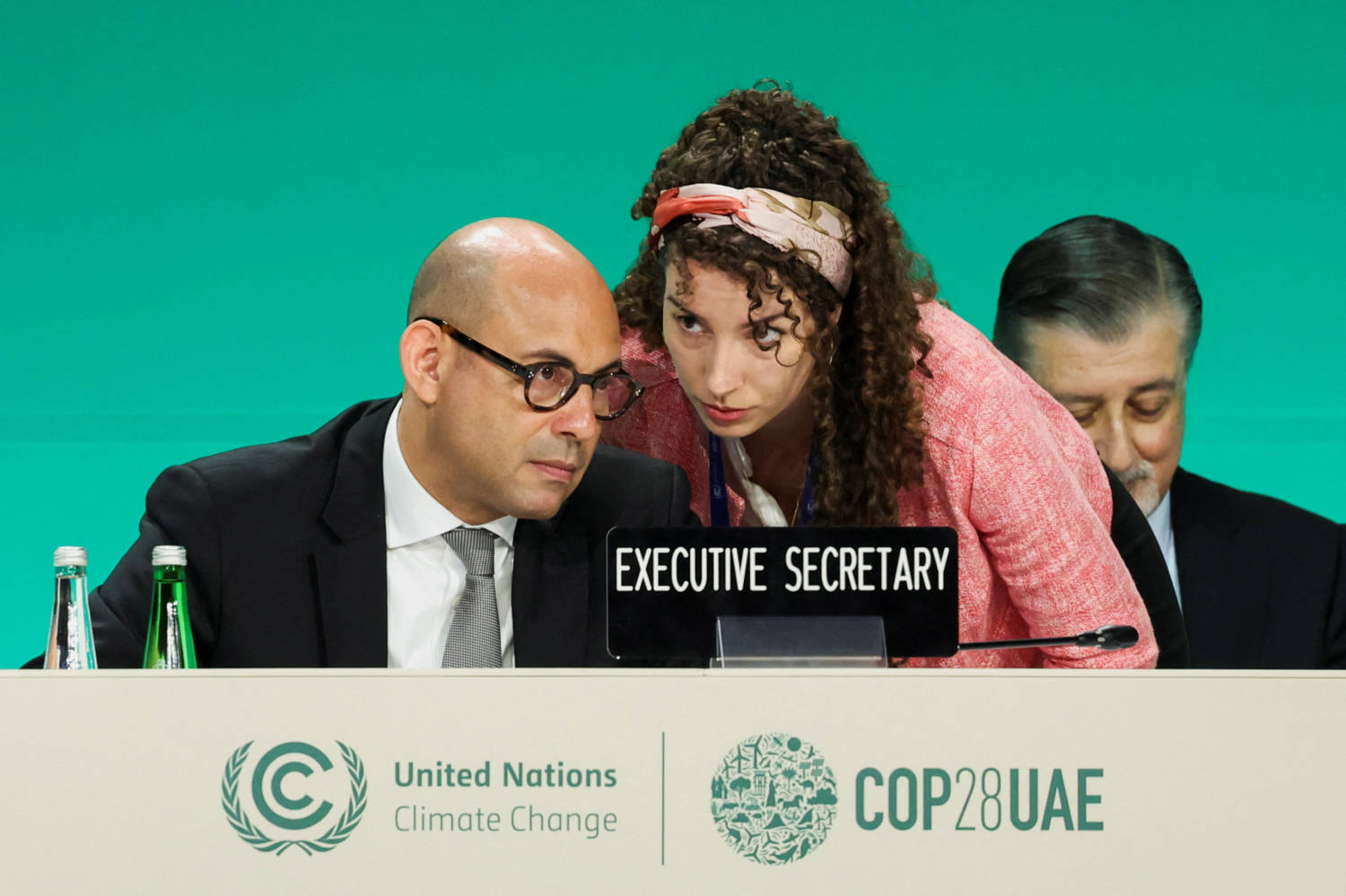Nations struck a historic deal on Wednesday at the COP28 climate summit in Dubai to transition the global economy away from fossil fuels, following two weeks of hard-fought debate.
Here are some takeaways from the pact:
TWILIGHT FOR OIL?
The headline agreement in the COP28 pact was a provision that calls for “transitioning away from fossil fuels in energy systems, in a just, orderly and equitable manner … so as to achieve net zero by 2050 in keeping with the science.”
That’s a mouthful.
But it boils down to the first time the world has expressed a unified desire to eventually end the oil age, and it sends a resounding signal to international markets.
It will not immediately destroy petroleum consumption and shrink prices. But – if it leads to incremental policy moves and shifting investment trends over time – it could ensure a longer-term transformation of the energy economy.
NOT SO FAST
The pact also had rewards for oil producers, in the form of a clear acknowledgment that technologies exist that can reduce the climate impact of oil, natural gas and coal – mainly by capturing carbon dioxide produced when fossil fuels are burned to prevent the emissions entering the atmosphere.
Embedded in a list of actions that countries should take to fight climate change was: “Accelerating zero- and low-emission technologies, including, inter alia, renewables, nuclear, abatement and removal technologies such as carbon capture and utilization and storage.”
Carbon capture has been around for a long time, but it remains very expensive in certain applications, and has never been proven at the vast global scale that would be needed to have an impact on climate change.
A source familiar with Saudi thinking said the kingdom, the de facto head of the oil producing group the Organization of the Petroleum Exporting Countries, could accept the deal because it provides a ‘menu’ for every country to follow its own pathway.
WHERE’S THE MONEY?
Even the delegations that appeared happiest with the accord had issues with it. The main one was the absence of any additional financing to help developing nations with the huge cost of transitioning away from fossil fuels.
Money to help poor, climate-vulnerable countries adapt to the impacts of climate change was also lacking.
“Adaptation is really a life and death issue,” said Bangladesh climate envoy Saber Hossain Chowdhury. “We cannot compromise on adaptation. We cannot compromise on lives and livelihoods.”
Those details will need to be taken up later, perhaps at the COP29 summit next year in Baku, Azerbaijan.
That said, the U.N. climate summit clinched an early victory related to money at the start of the talks, when delegates adopted a new fund to help poor nations cope with the loss and damage caused by climate disaster.
1.5 C GOAL STAYS IN CONVERSATION
The United States, the European Union, and scores of other countries were generally pleased with the outcome of the talks, saying the deal maintained a chance of limiting global warming to 1.5 degrees Celsius (2.7 degress Fahrenheit) above the pre-industrial average.
Getting there will be tough – requiring cutting emissions nearly in half in just six years, and to net zero by 2050.
The draft calls for countries to do so, but the Alliance of Small Island States is concerned it will not happen. AOSIS representative Anne Rasmussen from Samoa said the alliance felt the draft failed to deliver “the course correction that is needed”.
(Reuters)






